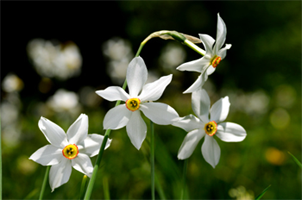Jan 24, 2026
Jan 24, 2026
 From my experience as a college and high school teacher, I found teaching poetry a greater challenge, compared to the other genres of literature. In fact teaching literature in itself posed a pedagogical challenge. But it could also be a pedagogical delight, as literature encapsulates the rhythms and genesis of life, and relating art to life within the traditional confines of a classroom was an inexorable experience.
From my experience as a college and high school teacher, I found teaching poetry a greater challenge, compared to the other genres of literature. In fact teaching literature in itself posed a pedagogical challenge. But it could also be a pedagogical delight, as literature encapsulates the rhythms and genesis of life, and relating art to life within the traditional confines of a classroom was an inexorable experience.
08-Aug-2012
More by : Ananya S Guha

|
Debabrata, Lucidity and simplicity is a subjective matter. To explain the processes of teaching poetry the language can get a little complex as you have to give examples of poets in question. However, a big thanks for reading my article. |

|
Dear Ananya,I thought that in the process of explaining the complexities of teaching poetry you could have kept the narration rather simple and lucid.I appreciate ,however,the flow of thought. |

|
When one says 'poetry' one is understood to understand the difference between what is and is not poetry. At one time, poetry was assumed to be of a recognisable form in rhymed verse: you were called a poet if you had an aptitude. Conversely, a writer would feel obliged to conform to the expectation of poetry: Shakespeare wrote sonnets, not because that was his choice: rather was it the demand of poetry. The dance determines the dancer, to answer Yeats' question. As times changed, the democratic voice came into the ascendancy, the couching of what was still distinguished as poetry done in free verse forms. To cut a long story short, today poetry is exactly what the individual thinks it is - but it is still distinguished from prose in the term. So what, to revert to the opening sentence, is understood by the term poetry? The answer is, I feel, largely a matter of instinct: a poem is a special utterance. |